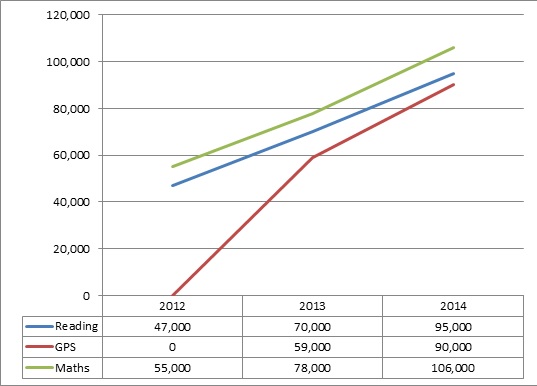I’ve had a response from Oxfordshire County Council (1/4/2014), which shows that across the county many schools are either leased from the LA or from a previous Foundation Trust; the main exception to this is in the case of C of E and Roman Catholic schools, where OCC may (as noted below) own the playing fields and lease them to a school, but the other land belongs to another body (presumably, the relevant diocese, although I have yet to investigate this). I have copied below the full text of the document sent to me by OCC:
“Freehold of land for academies in Oxfordshire
OCC own freehold of whole site with a 125 academy year lease out to academy
trust for all of part of the site for the following schools:
The Oxford Academy
North Oxfordshire Academy
Oxford Spires Academy (formerly Oxford School)
Wallingford School (secondary)
Hanwell Fields Community School (primary)
Rush Common School (primary)
Bartholomew School (secondary)
Faringdon Infant School
Faringdon Junior School
Faringdon Community College
Lord Williams’s School (secondary)
Chipping Norton School (secondary)
Langtree School (secondary)
The Cherwell School (secondary)
The Henry Box School (secondary)
Burford Secondary School
Didcot Girls’ School (secondary)
St. Birinus School, Didcot (secondary)
Northern House Special School
Gosford Hill School (secondary)
Cheney Community College
Harriers Ground Community Primary School – now Harriers Banbury Academy
Kingfisher Special School
Iffley Mead Special School – now Isis Academy
Fitzwaryn Special School
Cutteslowe Primary School
Manor School, Didcot (primary)
Willowcroft Community Primary School
Ladygrove Park Primary School
Orchard Meadow Primary School
Windale Community Primary School
Pegasus Primary School
Berinsfield Community Primary School – Now Abbey Woods Academy
Charlton Primary School
Watchfield Primary School
Cholsey Primary School
John Mason Secondary School, Abingdon
OCC do not own freehold of most of the school site for the following schools. (In
most cases OCC still own the freehold to the playing fields which are leased out to
the academy trust on a 125 year academy lease.):
The John Henry Newman CE Primary School
Gillotts School (secondary)
Wheatley CE Primary School
St Christopher’s C of E Primary School, Cowley
The Hendreds CE Primary School, Wantage
Grove C of E Primary School
John Blandy VC Primary School
Buckland C of E Primary School
Shrivenham C of E Primary School
Longcot & Fernham C of E Primary School
Wantage C of E Primary School
St Johns Primary School, Wallingford
St Joseph’s RC Primary School, Carterton
St Joseph’s RC Primary School, Thame
Our Lady of Lourdes RC Primary, Witney
St. Thomas More Catholic Primary School, Kidlington
Our Lady’s RC Primary School, Cowley
St John Fisher RC Primary School, Littlemore
St Gregory the Great RC Secondary School
The Marlborough C of E School (secondary)
NB: In both cases there may be areas of the school site which are either excluded
from the academy transfer i.e. freehold ownership by OCC was retained, or a
sublease was granted back to OCC for an area of the site.
OCC do not own the freehold of most or all of the site of previous Foundation Trust:
King Alfred’s Community & Sports College – now King Alfred’s Academy- trustees
own land and building, except playing field which is part trustees owned, part OCC
Banbury School (secondary)
Dashwood Primary School”
 This brief supplementary post considers the Level 6 test results – in reading, in maths and in grammar, punctuation and spelling (GPS) – and how they compare with Level 6 outcomes in 2012 and 2013.
This brief supplementary post considers the Level 6 test results – in reading, in maths and in grammar, punctuation and spelling (GPS) – and how they compare with Level 6 outcomes in 2012 and 2013. Chart 1: Entry rates for Level 6 tests…
Chart 1: Entry rates for Level 6 tests…